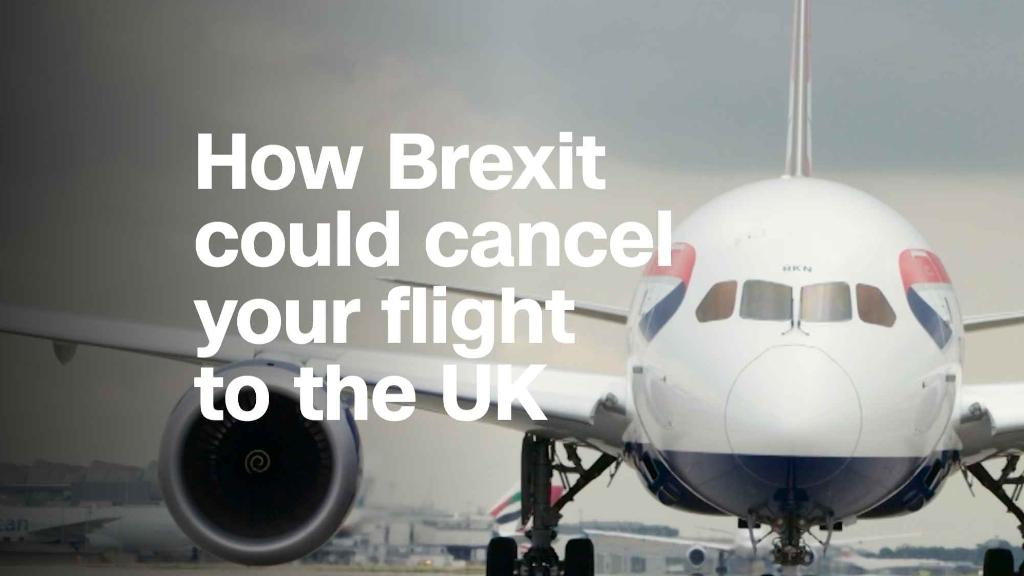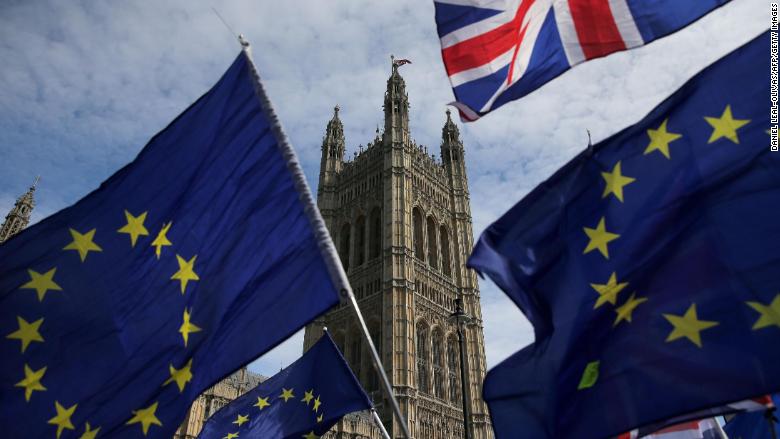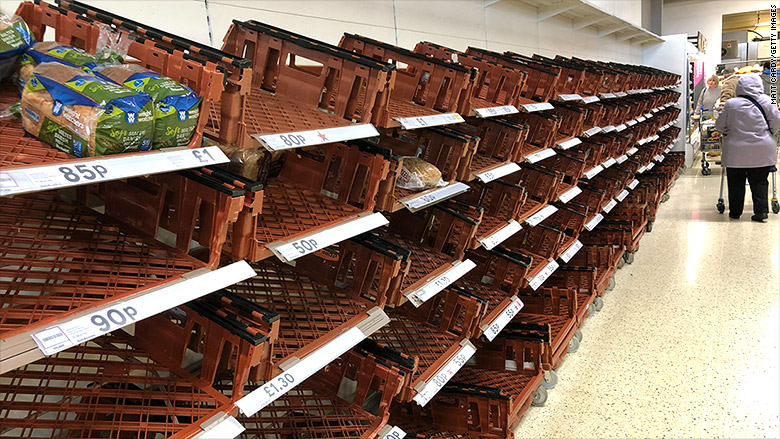
Would a messy Brexit cause food shortages? Or planes to be grounded? Would car plants fall silent?
With just eight months to go before Brexit, the UK government is fighting off accusations that it's not doing enough to prepare for a scenario where Britain crashes out of the European Union without a deal.
The latest battle is over potential food shortages, and whether the government or private sector should be stockpiling supplies to protect against border delays.
Britain imports half its food from abroad, and industry groups have warned that new tariffs and customs delays could lead to empty shelves and soaring prices.
"While we would not run out of food and drink in this scenario, there would be potential for serious disruption to supplies and this would have implications for product availability and consumer choice," said a spokesperson for the Food and Drink Federation.
The slow pace of negotiations has heightened fears in recent weeks that Britain may leave the European Union in March 2019 without a transition deal to keep it temporarily in the bloc's single market and customs union.
Those arrangements allow the European Union's 28 member states to function as a single trading area with no tariffs or border checks, and companies in the United Kingdom have come to rely on their benefits.
Automakers, grocers and retailers have warned of dire consequences if they're not able to receive the "just in time" deliveries that underpin their supply chains.
"Retailers do not have the facilities to house stockpiled goods and in the case of fresh produce it is simply not possible to do so," the British Retail Consortium said in a statement.
Related: Deutsche Bank shifts key business away from London

With the clock ticking down, the UK government has said it will issue a series of notices to businesses and citizens in August and September on how to prepare for a messy divorce from the European Union.
Companies still don't know whether they'll face new regulations, tariffs or customs checks. It's also unclear if they'll be able to move staff between the European Union and the United Kingdom, or be forced to pay new taxes.
Businesses and industry groups have warned of dire consequences if a deal is not struck.
Jaguar Land Rover, the largest automaker in the United Kingdom, has said that crashing out of the European Union would wipe out more than £1.2 billion ($1.6 billion) of its profit a year. Its CEO warned that £80 billion ($105 billion) of investment is at risk.
The Confederation of British Industry has said the country's car industry is facing "extinction."
European planemaker Airbus said in June that a messy Brexit would be "catastrophic," throwing its production into chaos and threatening its future in Britain. The company makes wings for all its commercial aircraft in the United Kingdom, employing 15,000 people.
The pain would extend far beyond manufacturing.
Related: The Brexit jobs tracker

No deal would mean that key trade, regulatory and legal agreements that underpin Britain's economy would be invalidated.
Britain is signatory to international aviation agreements via the European Union that allow flights to operate in and out of the country. Thousands of flights in and out of Britain could be grounded if the agreements are no longer valid.
If the United Kingdom loses access to the EU nuclear safeguard system, operators could have trouble importing parts for their aging reactors. The country would need to quickly negotiate new nuclear agreements and establish domestic oversight to comply with international nuclear rules.
Bankers say a messy Brexit could throw the legal status of financial products priced in euros into doubt, and undermine London's status as a top financial center.
Banks and other companies in the financial services sector have started moving parts of their operations out of the United Kingdom in order to safeguard their businesses. Deutsche Bank confirmed Monday that it has moved "a large part" of its euro clearing activity from London to Frankfurt.
Many financial services companies in the United Kingdom have applied for licenses that will allow them to continue doing business in the European Union.
The European Banking Authority warned in June that preparations for no deal "inadequate."
-- Mahatir Pasha contributed reporting.
